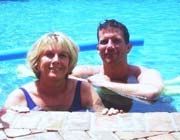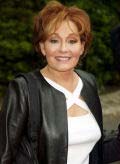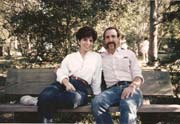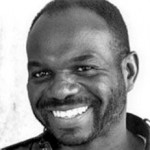In this Mother’s Day season, POZ honors moms who lost sons to HIV and, in the process, dove into AIDS advocacy and activism. Each of these women—whose children contracted HIV in the 1980s, a time of panic and severe stigma—shaped their initial confusion, shock and feelings of helplessness into a lifelong passion. They continue to raise awareness, sharing their struggles and accomplishments, which for them became a journey of self-discovery.
Meet AIDS lobbyist Suzanne Benzer, who helped launch the national advocacy group Mothers’ Voices; renowned 81-year-old activist Sue Caves; Daytime Emmy-nominated film and soap opera star Marj Dusay; and Freda Wagman, author of Snippets from the Trenches: a mother’s AIDS memoir.
Suzanne Benzer
POZ: Your son Bobby contracted HIV in 1987. How did his diagnosis mold you into an activist?
Suzanne Benzer: My son was in college at Vassar when he, unbeknown to us, contracted HIV there. I had this powerless feeling like I couldn’t do anything for him. When I started doing AIDS work, I often said that mothers are supposed to take care of their children and protect them. When he was growing up, I sent him to the best camps and the best schools, and there was still nothing I could do to [keep him from getting HIV].
Back when he contracted HIV—it will be 21 years in August—death often came really quickly. But Bobby lasted 20 years. He died in November 2007.
 | |
| Suzanne Benzer with her son Bobby Rosenthal |
I didn’t know if I could save Bobby. But I wanted to do whatever I could to try and save anybody else who was infected or could become infected. I joined ACT UP—which was in its heyday in those days—and I marched across the Brooklyn Bridge. I’m a child of the ’60s, so I love that stuff. Meanwhile, more and more people were getting infected, the face of AIDS was changing, and we broadened our scope to include everyone.
You said you were already an activist for other causes. How do you think AIDS activism has changed in the past quarter century?
I don’t see any AIDS activism now. When I was at Bobby’s funeral I saw a lot of the old crew and it’s just not the same. The sense of urgency is not here; it’s not an anxious time. I think what’s happened is that there’s this sense of complacency, because people aren’t dying the way they were. Bobby moved to [the predominantly gay San Francisco neighborhood] the Castro at one point, and it was unbelievable to see. It looked like the Holocaust there—all of these poor, thin, ravaged guys. You just don’t see that anymore. I’m not in the thick of things now, but I’m not sure there still is a “thick of things” anywhere.
Also, [the AIDS relief focus on] Africa is taking a lot of pressure off people to do something here in the United States. I had once thought that in trying to protect my child, I am no different from a mother in Africa trying to protect her child. There’s that primal need to care for one’s child and make it better.
How has your activism changed your life?
Oh, my whole life has been changed. Without my son and without AIDS activism, I never would have known who I was at all. How tough and resilient I am. I grew up a person of privilege. And I never would have known the strengths that I have without this happening to Bobby. I think of it like the Holocaust. I had some family members killed over there, and I used to think that I’d be a chicken and hide. But I realize now that I wouldn’t. I’d fight.
What do you think Bobby would say about the work you’ve done if he were here today?
Well, he did a lot of it with me. We were sort of a pair. I know what he did say, that he was so proud of me, and that gives me some peace now that he’s gone. He and I were extremely close. And I know that he would say, “Way to go, Mom. You did a good job.”
What advice would you give other mothers in a similar situation?
Number one, don’t become a victim. Never go into that mentality. And help your child and stick with your child. And fight for what you believe is right. If you can’t save your child, and if you’ve saved one other life, then you’ve done your job.
Sue Caves
POZ: You are now 81; your son Michael died of an AIDS-related illness in 1986, at the age of 35. How did his diagnosis transform you into an AIDS activist?
Sue Caves: Michael and I had been volunteering at an HIV testing program at the Gay and Lesbian Center in Long Beach, California. One of the things we had to do to be a volunteer was be tested, and we both did. I didn’t even go back for my results—I knew there was no way I would have HIV—but Mike, of course, did.
When he got sick and then died, I realized that he was number 200 in Long Beach that had died at that time. And I realized how many of those young men were throwaways. Their families had thrown them away.
And I also realized that there were parents out there who were so hidden and so closeted. They were more closeted than their gay sons, practically. So I started hanging out at the Gay and Lesbian Center and volunteering my time. Which was a very small thing. Mike died in October. The first big thing I did, I guess, was deliver Christmas presents to people living with AIDS. And then I started a support group called Families Who Care. I had a job selling real estate, but one of the AIDS agencies in town ended up asking me to go to work for them and I did. And I also continued doing volunteer work. I didn’t want Michael’s name to not be forgotten. I’ve worked with Being Alive [an LA-based HIV social service agency] and the Comprehensive AIDS Resource Education Program at St. Mary’s Medical Center in Long Beach. I’ve also done a lot of public speaking. I brought the AIDS Quilt to Long Beach; I was the president of the first Quilt chapter here.
How did that come together?
Through Families Who Care, I learned that some guys up in San Francisco were making a quilt, and I made a panel for my son. And all it said on it was J. Michael Caves and the dates of his birth and death. And it was done in black and white, because that’s how he had just redone his room. And when I got done with it, I just thought, “Oh, it’s so ugly.” And I had it hanging over the back of a chair.
I ended up taking it up to San Francisco, where I have another son who’s married. I told him and his wife, “It’s ugly. I don’t want to take it in; I’m not going to do anything with it.” And they talked me into going down to the Castro and seeing if we could find these guys. Because all I had was a PO box, that’s where I was supposed to mail it. So we did.
We wandered the streets of the Castro, and we saw the quilts in the window, and sure enough it was the right place. [AIDS Quilt founders] Cleve Jones and Mike Smith were there, and I think they thought I was just a crazy little old lady who had gotten loose in a quilt shop, but they were very nice. And I went wandering around, looking at all the panels that were on the wall. And as I was walking out, they said, “Is there anything we can help you with?” And Cleve Jones was up at the door by then. And I said, “My son Michael died of AIDS, I made him a quilt and it’s too ugly and I’m not going to bring it in.” And he said, “None of them are too ugly. Please bring it in.”
And so we went home, my daughter-in-law stitched it up on the sewing machine—I had only pasted it before, I didn’t have a machine—and we brought it in. And they asked me to go to Washington with them. And that was the first time the quilt was ever in DC. And I went to that, and I was a reader in that first year in 1987.
So I ended up reading and doing all the stuff for the AIDS Memorial Quilt. I was so full of myself, I guess, that once I was walking down the halls of the Senate building and saw Teddy Kennedy’s office. And believe it or not, I walked in. And he saw me. And he said he would do something. The Ryan White Care Act was originally a Kennedy bill. So he did do something. He did what he said he was going to do. So that was a wonderful experience. And I went every year with the quilt to Washington for a number of years. One year they asked me to speak, and I spoke standing on the steps of the Lincoln Monument. That was a thrill.
Even after Michael’s passing you kept involved with AIDS work. What do you think Michael would say about the work you’ve done?
I don’t know. A lot of different people have come up to me and said that he’d be proud of me. I was one of the first mothers who was out there screaming, but I didn’t know, I had no idea. I think he’d be glad that I’m such a big booster for the community, because I am. I’ve gotten into lots of quarrels over the years. But things are better now, they really are.
What advice can you give to mothers experiencing what you did?
Support your son. Don’t throw him away. I don’t think people are doing that anymore. I have always said loudly “My son died of AIDS.” And you could feel people cringe almost for a long time. Now they just say, “I’m sorry, Sue, you lost your son.” So that’s the biggest thing. Just hold them close and make sure they get care and get to the right doctors.
How has AIDS activism changed your life?
Wow. It completely changed my life. I’m 81, a product of a 1930s upbringing. I was such an innocent, about as green as grass about everything. I’m from a generation where women didn’t march in the streets. We didn’t raise our voices for a lot. But AIDS caused me to. And I still do. If I believe something, I believe it and I yell it from the housetops. I’ve got the courage to do it now, and I didn’t before. I could never believe that I actually picketed the White House to try and get Bush Senior to see the quilt. It gave me a life. It gave me a reason. I’ve got other kids—I’ve got seven grandchildren—but this became my passion.
Marj Dusay
POZ: You’ve had a very successful film and TV career—from Clambake, with Elvis Presley, to soap operas All My Children and Guiding Light.
Marj Dusay: Well, I’ve been very lucky; I’ve worked very hard…
Your son died in 1993. When did you first become involved in AIDS activism?
After his diagnosis, in late 1986. At that time, there was certainly the news about it and everything, but there wasn’t the massive amount of information. So it was pretty scary.
And after the shock of Randy’s diagnosis, what did you do?
 | |
| Soap star and AIDS advocate Marj Dusay |
I was working right in Hollywood at that time, and it’s amazing how many people in that liberal community were fearful. The parents who turned away their children I thought were abominable. Still do.
Describe your work with Project Angel Food, which provides daily meals for people living with HIV/AIDS and other illnesses.
It was a great place for me to go to be able to do something hands-on. Not a PR thing. This was something where I had to go down there and mingle with the people and chop the food and package the food and be right there. It was a very cheerful group. These people wanted to do that. It meant a lot to me.
It is a way for somebody like me who’d been on television and done soaps and movies; it is a way for me to get down there and get lost in what’s real.
How has AIDS activism and advocacy changed your life?
Well, it made me face some reality. I know the last year was very difficult with Randy. Fortunately, he didn’t really become hospitalized until about the last three and a half weeks of his life. And unfortunately, combination therapy for him at that time just didn’t work. I think if you’re that caring person that stays close to it, you go through hell. But then, my God, I gave him such beautiful support. And other friends and relatives were so supportive. And I was very happy and proud that they were those kinds of people.
What advice could you give our readers?
You have to have the strength to live through it and say, at the end, at least you made it as good as it could be. And try to make it as good as it could be. And also, stay close to people in support groups. I think they’re much more sophisticated these days. There’s more information now; I think there are more choices.
Freda Wagman
POZ: You’ve written a memoir, Snippets From the Trenches, which details the experiences you and your and late son, Gary, shared with HIV. How does your story begin?
 | |
| Freda Wagman and her son, Gary |
The foundation was a skeleton crew. We were winging it. The city of Houston was not maintaining any epidemiology records, and the city didn’t require it of the health department. So they had no information to go on. And this group of people realized that other cities were getting funding because they were keeping records. There was such a need, but since records weren’t kept, we didn’t have the information we needed to get grants or anything. So this group protested and demanded that the city council get on the stick.
And where did this work take you?
I thought, “OK, I guess I’m in now because this cause means so much to me.” And also, I was trying to prepare myself for whatever my son and I might have to deal with. My life with all the other people, the volunteers who eventually became ill themselves and died, was very full in and of itself.
My book tells about my learning experience and my own growth, and watching what my son was doing with his life. He started out telling me all of his lab numbers and then he decided not to, because he said, “I don’t want to worry you and there’s nothing to worry about.” So I said “So, do you think I’ll worry any less not knowing?” And he said, “Well, that’s the way it’s going to be.”
So as far as I know he stayed healthy for a very long time. In the later years when I was out there, I would see more medications on the dining room table, or then it got to where I would go to the drugstore with him. And then he didn’t go into the hospital until almost 13 years after his diagnosis.
That was a very bad time. He went into the emergency room in San Jose because he was visiting relatives there for Thanksgiving. And he went back to work after New Year’s and he just never got over the AIDS-related pneumonia, I guess, because he died in April of 1994. But he worked until the day he went into the hospital, which was his birthday, in April. And then he died 10 days later.
An HIV diagnosis in those days often created a distance between parent and child. But it seems to have brought you and Gary closer together.
We were always very, very close. I raised him mostly by myself. His father saw him every week, but they weren’t very close. And I don’t really know of any impact that his father had on Gary’s personality. Well, actually, he never told his father he was gay until after he was living in California. And I never told his father either. We didn’t hate each other, but we didn’t have anything to do with each other either.
A lot of people who’ve read my book have remarked about my closeness with Gary. The [HIV-positive] gay men who’ve read it say, “I’ve always wondered how a mother feels. I still can’t come out to my mother, and she’s going to be devastated when I tell her I’m HIV positive.” And they’re sort of fascinated that a mother could be so close and supportive. I don’t see how any mother can’t be close and supportive. It boggles my mind that parents disown their children. That’s a very important point in the book that some of the reviewers have said.
What do you think that Gary would say about your continued work in the AIDS community?
Oh, he’d say, “You go, Mom!” There’s this one Mother’s Day card he’d sent me that says, “It’s so good to have a mom like you.” And after the printed poetry it says, “I feel we’ve grown a lot and learned a lot about each other in the last few years. Because of the virtues described in this poem, the process of growth, love and respect has been easier and deeper. With much love, Gary.”
To learn more about Snippets from the Trenches and to order a copy, contact Freda Wagman at Freda.Wagman@SBCGlobal.net






2 Comments
2 Comments